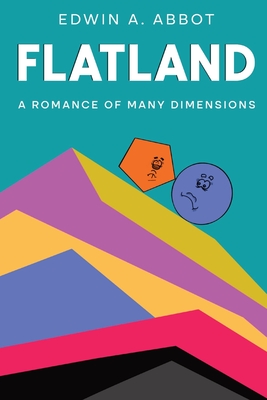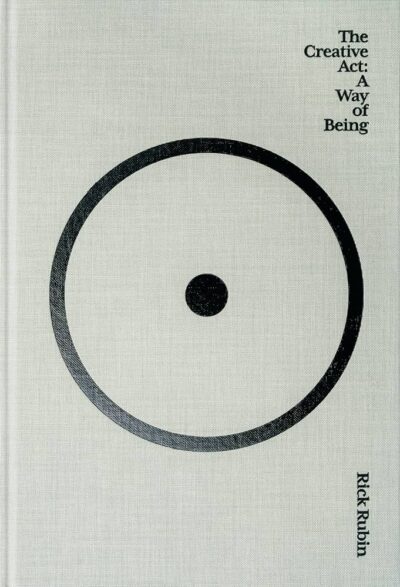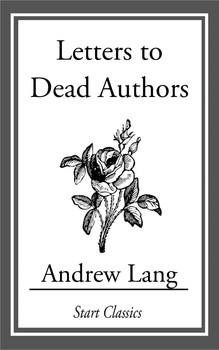182 Results with the "Philosophical" genre
Adventure Fiction (1164)
Biography (435)
Business & Finance (1)
Children's Literature (124)
Comics (6)
Culture (51)
Drama (123)
Dystopian (29)
Fable (86)
Fantasy (1132)
Fantasy (203)
Fiction (1010)
Finance (1)
Gothic Fiction (12)
Historical Fiction (615)
History (122)
Horror (56)
Lifestyle (36)
Literary (404)
Literary Fiction (207)
Memoir (113)
Mystery (422)
Non-fiction (87)
Novel (549)
Paranormal Fiction (96)
Philosophy (45)
Poetry (249)
Political Fiction (14)
Politics (42)
Practical (32)
Psychological (4)
Psychological Thriller (108)
Relationship (6)
Romance Novel (716)
Romantic Melodrama (14)
Satire (91)
Science (46)
Science Fiction (345)
Self-help (68)
Society (65)
Society (2)
Spiritual Growth (1)
story (2)
Thriller (704)
True Crime (56)
view (11)
Women's Fiction (2)
Young Adult (233)
-
 Chapter 22 - Growing Old Ungracefully opens with a candid exploration of society’s complex relationship with aging, revealing how uncomfortable many become as time begins to leave its visible trace. The passage of years brings inevitable changes—silver strands, fine lines, slower movements—but instead of greeting these with acceptance, people often respond with alarm. Rather than allowing age to unfold naturally, a cultural resistance develops, prompting increasingly elaborate attempts to hide what…
Chapter 22 - Growing Old Ungracefully opens with a candid exploration of society’s complex relationship with aging, revealing how uncomfortable many become as time begins to leave its visible trace. The passage of years brings inevitable changes—silver strands, fine lines, slower movements—but instead of greeting these with acceptance, people often respond with alarm. Rather than allowing age to unfold naturally, a cultural resistance develops, prompting increasingly elaborate attempts to hide what…-
151.7 K • Ongoing
-
-
 Section 22 – Flatland reveals a deeply personal and philosophical crisis that unravels slowly within the mind of the narrator. As the realization of a Third Dimension settles into his consciousness, he struggles to share this vision with others who are confined to thinking only within their two-dimensional limitations. His initial excitement turns to despair as even his grandson—bright and inquisitive—dismisses his attempts at explanation. The rejection wounds more deeply because it comes from…
Section 22 – Flatland reveals a deeply personal and philosophical crisis that unravels slowly within the mind of the narrator. As the realization of a Third Dimension settles into his consciousness, he struggles to share this vision with others who are confined to thinking only within their two-dimensional limitations. His initial excitement turns to despair as even his grandson—bright and inquisitive—dismisses his attempts at explanation. The rejection wounds more deeply because it comes from…-
92.9 K • Ongoing
-
-
Chapter
Crafting
 The crafting phase in the artistic process represents a vital shift, moving away from the unbounded freedom of initial exploration toward a more methodical and structured development. It’s the stage where the initial bursts of inspiration start to take shape into something more concrete. This transformation requires the artist to shift from open-ended curiosity into focused action, where they refine ideas and develop them into a completed project. The joy and spontaneity of the early creative process…
The crafting phase in the artistic process represents a vital shift, moving away from the unbounded freedom of initial exploration toward a more methodical and structured development. It’s the stage where the initial bursts of inspiration start to take shape into something more concrete. This transformation requires the artist to shift from open-ended curiosity into focused action, where they refine ideas and develop them into a completed project. The joy and spontaneity of the early creative process…-
341.4 K • Ongoing
-
-
Chapter
Translation
 Lacking knowledge in a particular area should not be viewed as a barrier but rather as an opportunity to explore new possibilities. Whether in art, writing, or translation, gaps in understanding can serve as invitations to develop new skills and broaden perspectives. By fostering a mindset of continuous learning and curiosity, individuals can approach the creative process with enthusiasm, always seeking to refine their craft and enhance their ability to communicate across different mediums. The act of…
Lacking knowledge in a particular area should not be viewed as a barrier but rather as an opportunity to explore new possibilities. Whether in art, writing, or translation, gaps in understanding can serve as invitations to develop new skills and broaden perspectives. By fostering a mindset of continuous learning and curiosity, individuals can approach the creative process with enthusiasm, always seeking to refine their craft and enhance their ability to communicate across different mediums. The act of…-
341.4 K • Ongoing
-
-
Chapter
LETTER–To Charles Dickens
 Letter to Charles Dickens begins not with division, but with a call for balance—between voices, between readers, between the living force of your imagination and the measured realism of your great peer, Thackeray. Though their methods differed, both you and he worked toward understanding the heart of humanity, seen not only in drawing rooms but also in workhouses and alleys. The letter dismisses petty rivalry, instead urging appreciation of how both authors shaped the English novel. Your pages, Charles,…
Letter to Charles Dickens begins not with division, but with a call for balance—between voices, between readers, between the living force of your imagination and the measured realism of your great peer, Thackeray. Though their methods differed, both you and he worked toward understanding the heart of humanity, seen not only in drawing rooms but also in workhouses and alleys. The letter dismisses petty rivalry, instead urging appreciation of how both authors shaped the English novel. Your pages, Charles,…-
82.9 K • Ongoing
-
-
Chapter
Chapter 1 — “Uncle Sam”
 Chapter 1 - "Uncle Sam" begins with an unexpected legacy born from an ordinary act: the naming of a hill and town in upstate New York. The choice of “Troy” and “Mount Ida,” though perhaps intended to summon classical grandeur, would later become the quiet backdrop for a national icon’s origin. Amid the daily rhythms of early 19th-century life, Samuel Wilson, a local man known for his cheer and generosity, built more than a business—he built trust. Children called him “Uncle Sam” with…
Chapter 1 - "Uncle Sam" begins with an unexpected legacy born from an ordinary act: the naming of a hill and town in upstate New York. The choice of “Troy” and “Mount Ida,” though perhaps intended to summon classical grandeur, would later become the quiet backdrop for a national icon’s origin. Amid the daily rhythms of early 19th-century life, Samuel Wilson, a local man known for his cheer and generosity, built more than a business—he built trust. Children called him “Uncle Sam” with…-
151.7 K • Ongoing
-
-
 Chapter 33 - The Spirit of History presents not just the chronicle of events, but the embodiment of a man whose life became one with his country’s past. Jules Michelet, driven by a profound calling, gave himself to the task of animating the silent echoes of French history. He did not simply record events—he felt them. To him, dusty records were not remnants of forgotten days but voices waiting to be heard again. With each turn of a page, he believed he was uncovering the living breath of a nation. His…
Chapter 33 - The Spirit of History presents not just the chronicle of events, but the embodiment of a man whose life became one with his country’s past. Jules Michelet, driven by a profound calling, gave himself to the task of animating the silent echoes of French history. He did not simply record events—he felt them. To him, dusty records were not remnants of forgotten days but voices waiting to be heard again. With each turn of a page, he believed he was uncovering the living breath of a nation. His…-
151.7 K • Ongoing
-
-
Chapter
Submerge (The Great Works)
 Immersing oneself in high-caliber artistic and intellectual creations is a transformative practice that fosters depth, refinement, and a heightened sense of appreciation for beauty. The chapter Submerge from The Great Works underscores the power of intentional engagement with masterful works across various mediums, from literature and music to architecture and film. It suggests that by consciously selecting and absorbing content of exceptional quality, we refine our ability to recognize brilliance and…
Immersing oneself in high-caliber artistic and intellectual creations is a transformative practice that fosters depth, refinement, and a heightened sense of appreciation for beauty. The chapter Submerge from The Great Works underscores the power of intentional engagement with masterful works across various mediums, from literature and music to architecture and film. It suggests that by consciously selecting and absorbing content of exceptional quality, we refine our ability to recognize brilliance and…-
341.4 K • Ongoing
-
-
Chapter
The Ecstatic
 The pursuit of creativity is often fueled by The Ecstatic—an indescribable sensation of overwhelming, almost intoxicating joy that emerges when something truly resonates. Whether it’s a breathtaking painting, a haunting melody, or a passage of literature that lingers in the mind long after it has been read, the Ecstatic is what draws both creators and audiences alike into the artistic experience. It’s akin to tasting fruit at the peak of its ripeness, a moment of perfection where everything aligns…
The pursuit of creativity is often fueled by The Ecstatic—an indescribable sensation of overwhelming, almost intoxicating joy that emerges when something truly resonates. Whether it’s a breathtaking painting, a haunting melody, or a passage of literature that lingers in the mind long after it has been read, the Ecstatic is what draws both creators and audiences alike into the artistic experience. It’s akin to tasting fruit at the peak of its ripeness, a moment of perfection where everything aligns…-
341.4 K • Ongoing
-
-
Chapter
Why Make Art?
 Art is more than an individual pursuit; it is an expression that extends beyond the artist, reaching into the collective human experience. The creative drive within artists resembles an instinctual pull, much like a bird’s migration or a river’s course to the sea—an unstoppable force that moves them to create. This impulse is not solely about personal exploration or the pursuit of recognition but rather an innate urge to communicate something meaningful, a desire to share a distinct perspective that…
Art is more than an individual pursuit; it is an expression that extends beyond the artist, reaching into the collective human experience. The creative drive within artists resembles an instinctual pull, much like a bird’s migration or a river’s course to the sea—an unstoppable force that moves them to create. This impulse is not solely about personal exploration or the pursuit of recognition but rather an innate urge to communicate something meaningful, a desire to share a distinct perspective that…-
341.4 K • Ongoing
-
- Previous 1 … 11 12 13 … 19 Next
